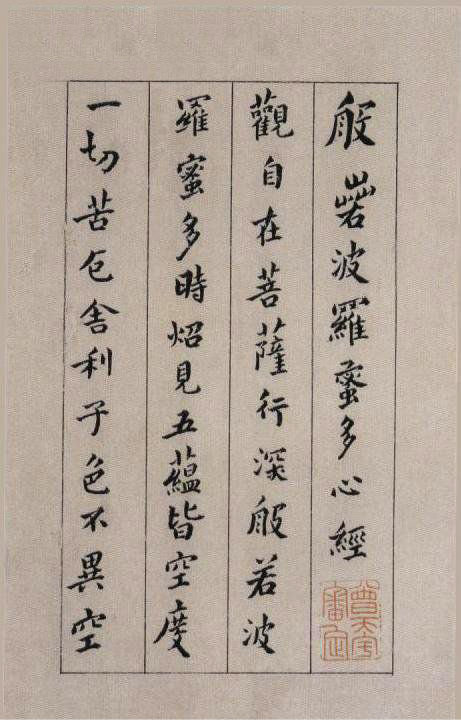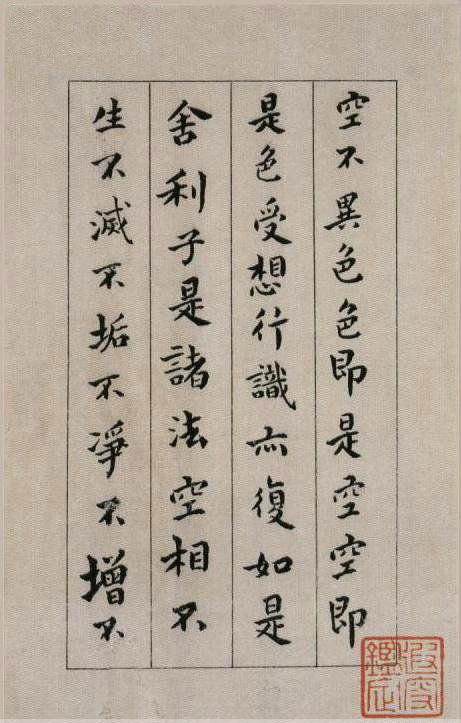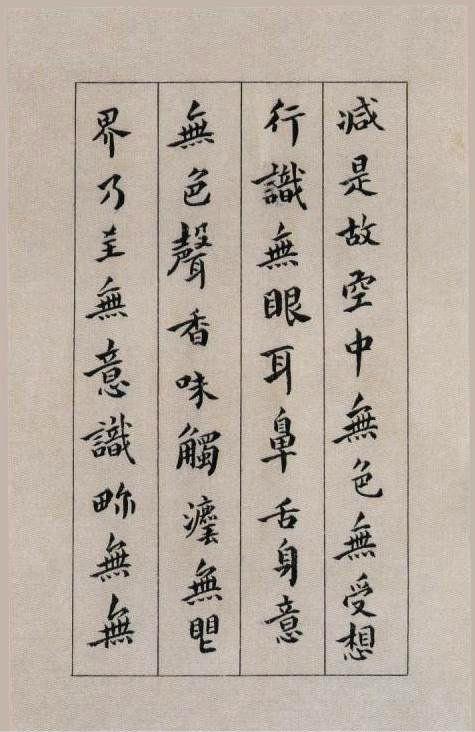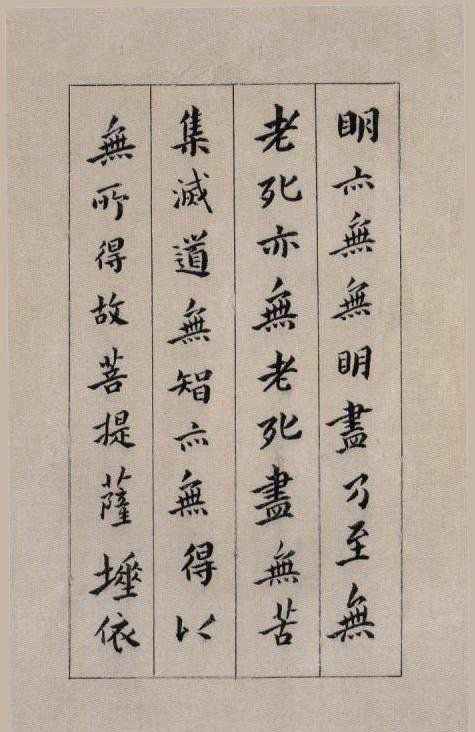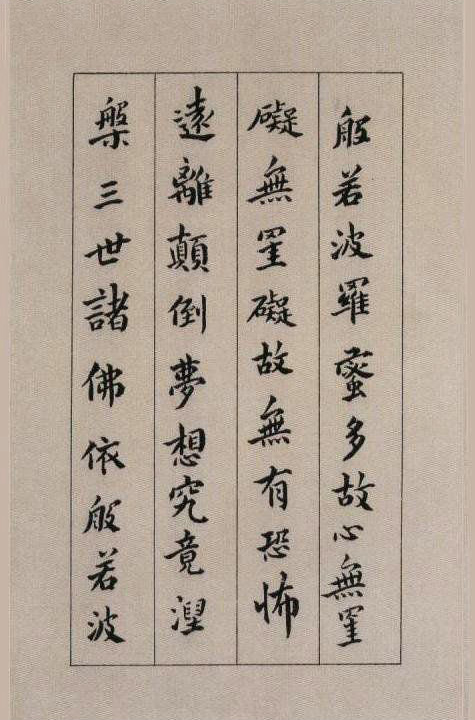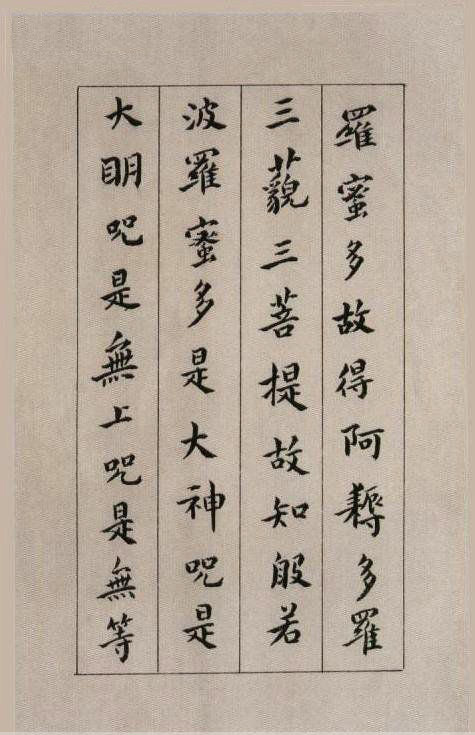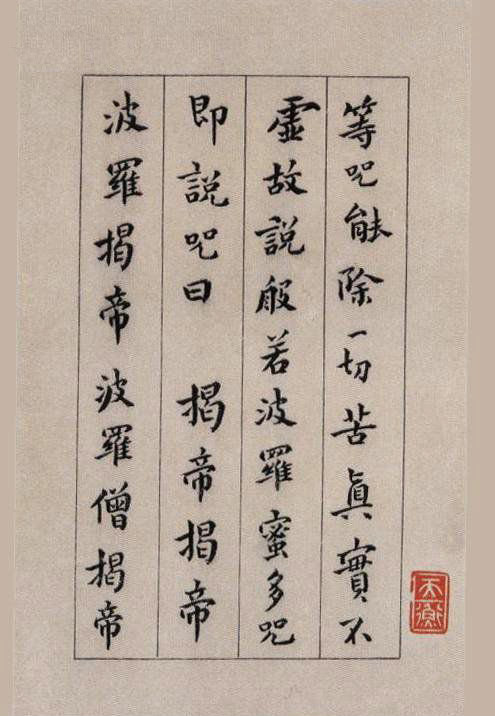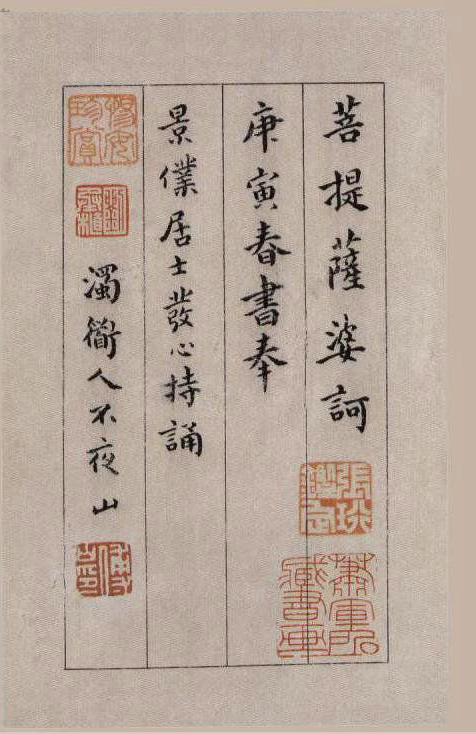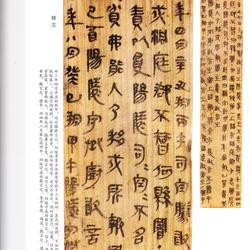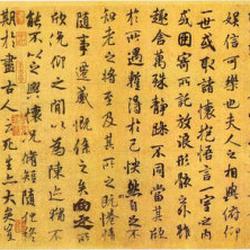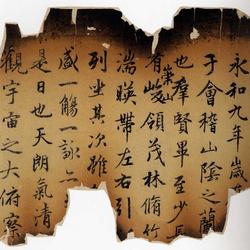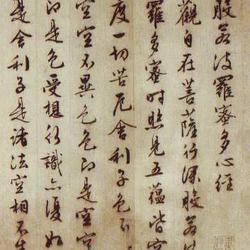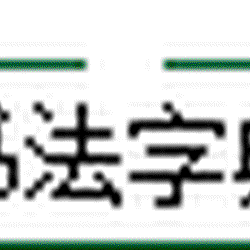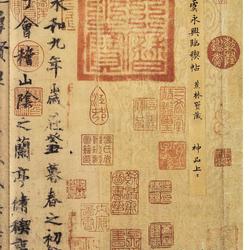Fu Shan was originally a loyal and honest intellectual, indifferent to fame and fortune, and diligent in reading. His calligraphy, which he had learned from Zhao Mengfu and Dong Qichang for the first time, was almost unreal. His "Shanglan Wulong Cave Garden Notes" was written in the 14th year of Chongzhen (AD 1641), and is indistinguishable from the style of the Song Dynasty. Literati in the Song Dynasty liked to use novel words and allusions, and so did Fu Shan. He is rich in knowledge, profound in knowledge, and quite individual. Coupled with the influence of famous calligraphers such as Zhang Ruitu, Huang Daozhou, Wang Duo and Ni Yuanlu, Fu Shan's calligraphy has a unique and strange flavor. Of course, the most important thing is that his outlook on life and aesthetics play a decisive role. He admired Yan Zhenqing's character and book quality so much that he was in awe of him. He likes to use Yan style when writing large characters, such as "Collection of Ancient Plum Blossom Poems", and he also uses Yan style when writing small regular script, such as "Xiaoyaoyou". Deng Sanmu said in "Linchi Occasionally": "Fu Shan's small regular script is the most exquisite and is extremely clumsy. However, he does not write much. He usually responds to people's requests in cursive script. However, his cursive script is not at all tacky. The appearance is elegant and the connotation is stubborn, just like The way he is as a person". His facial expressions are very good, and there are many large-character couplets and lists of facial expressions that have been handed down to this day, all of which are dignified, vigorous, vigorous and powerful.
Fu Shan made contributions to the theory of calligraphy art. The theory of "Four Nings and Four Nos" proposed by him is extremely insightful and has universal significance and far-reaching influence on the entire art field.
“It is better to be clumsy than skillful, ugly than charming, detached rather than slippery, and straightforward rather than arranged, which is enough to influence the field of Chinese calligraphy.
When writing books, we should rather pursue simplicity rather than splendor. We should pursue an artistic realm that is both clumsy and subtle.
It is better to write ugly or even rough-looking, than to please others, be servile and seek inner beauty.
It is better to pursue loose and jagged old trees than to be frivolous and slippery. The natural and sparse taste is far better than the frivolous appearance of character.
It is better to write in a straight line without any worries, than to paint your eyebrows and hair or embellish your hair, which may seem like a pretense.
Fu Shan's theory has great significance in criticizing the trend of the times and turning the tide. It can be said that he was an enlightening and enlightening person. Compared with the literati and scholars of his generation, he was very different. In his poems, there is no intention to speak for the saints or provide advice to the rulers. On the contrary, he claimed to be a Taoist priest and an expatriate. When there was no hope of resisting the Qing Dynasty and restoring the Ming Dynasty, he expected a change in the world's moral standards. He gave himself the nickname "Guanhua Weng". Now that the rule of the Qing Dynasty has been consolidated, the world's social customs and people's hearts are getting worse and worse, so they hope to get worse quickly, and things will change suddenly after the extreme. He has conducted in-depth research on the scholars of the Warring States Period, and believes that ancient academic culture can inspire the descendants of the Yan and Huang Dynasties to work hard; he is willing to be a stone that can attack jade, and looks forward to the true awakening of the nation and the fundamental eradication of tyranny.
Jin Shengtan was the same age as Fu Shan. Jin liked to make insinuations about the emperor, but he also had illusions about the emperor. But Fu Shan had no illusions. He wrote: "Li Bai treated the emperor as he treated an ordinary person, and being an official was like being a scholar, and he became a madman." He explained the saying "If you don't do anything for the princes, you should be noble about it" in "Zhouyi·Gu Gua·Shangjiu": "Princes and princes are all truly noble sages, and doing nothing is noble. The rest of the so-called princes are not princes, and if they don't do anything, they will be noble." How can it be noble to have equal ears?"
When Fu Shan commented on Ouyang Xiu's "New History of the Five Dynasties", he said: "Wang Yanzhang was a rough and rude man. He was only concerned with matters of death. He specially established a death festival and did not consider who the dead were at all." What a sharp comment Fu Shan made! What kind of bullshit emperor is he worth dying for? For those slaves and obedient people who obey the emperor no matter what kind of emperor they are, this is undoubtedly a shocking rebuke and a sharp irony.
In his later years, Fu Shan focused on studying the scholarship of the Eastern Zhou Dynasty and achieved great academic achievements. The fifth volume of "General History of Chinese Thought" contains a special chapter by Fu Shan, which is highly praised by historians. He conducted in-depth research on the calligraphy of Wang Xizhi and Wang Xianzhi, and re-evaluated the calligraphy of Zhao Mengfu. Let's take a look at his poem "Bing the Candle": "When holding a candle, I sigh deeply, and a strange man wants to break his heart. Zhao Si is really different, and his humbleness is also very bad. When you are drunk, you are still drunk, and when you are old, you are even crazier. When you turn the wheel in one stroke, where can you post an article? ". The phrase "pulling the wheel" comes from "Zhuangzi: The Way of Heaven": "When I am seventy years old, I am old and the wheel is spun." This poem was undoubtedly written after Fu Shan was seventy years old. "Zhao Si" refers to Zhao Mengfu, "Guan Bei" refers to Zhao Mengfu's wife Guan Zhongji, and "Qiren" refers to the Zhao couple.
Fu Shan studied Zhao when he was young, but later scolded Zhao for purely political and ideological reasons, and repeatedly warned his children and grandchildren not to learn Zhao. At this time, after in-depth study of Wang Shu, he regarded Zhao Mengfu as a strange genius.
